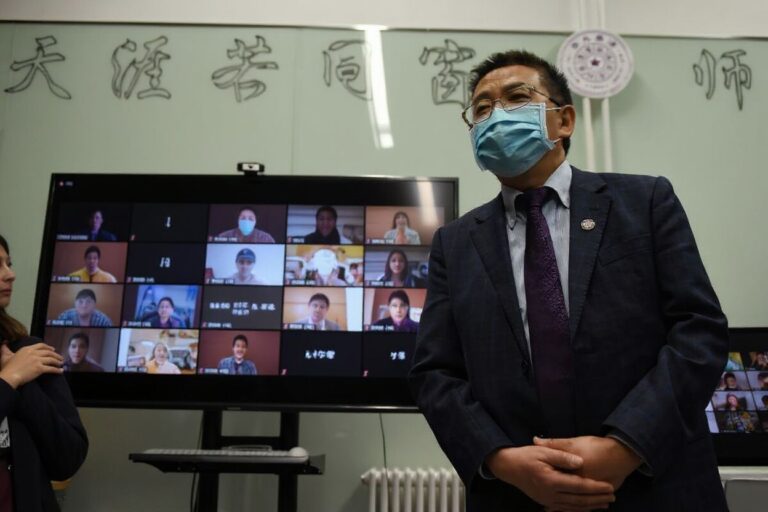
As universities transition to online learning due to the pandemic, some have opted to switch to a pass/fail grading system to make it easier for students who are facing hardship from the transition.
This includes universities such as Yale, which became the fourth Ivy League university to adopt the universal pass/fail grading policy.
More than 150 US colleges and universities have adopted a pass-fail grading system for the spring semester https://t.co/1eVqg65Yat
— @timeshighered (@timeshighered) April 10, 2020
According to The DP, the decision was made when the Yale College Council endorsed the universal pass policy after 68 percent of respondents to a poll expressed support for it. Students also created a “No Fail Yale” Facebook page to advocate for this policy which has since garnered over 1,700 likes.
The reason behind these new grading systems is to equal the playing field, as some students are at an unfair advantage and face disparities when it comes to online learning.
 Universities around the world have found themselves forced to mass migrate to online learning.
Universities around the world have found themselves forced to mass migrate to online learning.
The case against the pass/fail grading system
I’m sorry but “pass or fail” grading is the dumbest thing ever for competitive students. what will that do to my gpa and my ranking??? we should be able to choose between a numerical grade or the pass fail
— lillian fineã (@BessFinea) April 3, 2020
The move is divisive — many universities and professors are against implementing a pass/fail grading system.
Mark Lee — the director of MBA programmes at Trinity Western University, told Study International that he is dead against it as it does not provide an incentive for students to get better or improve.
“It’s kind of the equivalent of handing out a participation ribbon at a sports tournament, where there are no winners or losers. You will end up with a bunch of students with a “good enough” mentality, rather than striving towards excellence. Business doesn’t work that way!”
“In the same way, I don’t want a medical doctor operating on me that would have gotten a “B-” in an internal medicine course, which might have rated a pass, but leaves some questions of competency when my life is at risk. The same goes for the engineers designing a plane I’m flying in, or any of a number of other professions, where their grades often do determine success in their professional careers.”
 Not every student would be able to shift to online learning seamlessly, hence why a more lenient grading system is being proposed. Source: Roslan Rahman/AFP
Not every student would be able to shift to online learning seamlessly, hence why a more lenient grading system is being proposed. Source: Roslan Rahman/AFP
He said that while advocates of the pass/fail system will counter that the bar for a “pass” grade for a medical or engineering student should be set sufficiently high so that the student either gets an A or fails, “the unfortunate reality is such a system results in ‘bracket creep,’ where marginal students make it through simply because the university can’t allow everyone to fail.”
Desperate times call for desperate measures
Arlington ISD, UT-Arlington switch to pass/fail grading system because of campus closures https://t.co/KtuzVkD7EX
— Dallas Morning News (@dallasnews) April 9, 2020
Advocates of the pass/fail grading system say that it is a temporary solution in these unprecedented times.
Thomas . Guskey, Senior Research Scholar at the University of Louisville recently wrote, “The ancient Greek physician Hippocrates is credited with the quote, ‘Desperate times require desperate measure’. What he meant is that in adverse circumstances, actions that might have been rejected under other circumstances may become the best choice. And these are certainly desperate times.
“Considering our circumstances, Harvard University, the Massachusetts Institute of Technology, Boston College, Boston University, Northeastern University, and Smith College all recently decided to temporarily shift to pass/fail grading after switching to remote learning this semester.

Due to some students facing hardship as they switch to online learning, universities have opted for pass/fail grading systems. Source: Tony Karumba
Associate Professor Dr Puan Yatim, who is also the Dean of UKM-Graduate School of Business at Universiti Kebangsaan Malaysia (UKM), told Study International that the switch may be suitable for the transitional period but universities should go back to the standard practices of the grading system when the pandemic is over.
She said the benefits of the switch are that “students feel less stressful during the crisis period, and there is also less stress for professors,” and that “students tend to work more closely with each other and there is less competition among them.”
However, she echoed Mark Lee’s concerns in saying that the switch removes performance-based learning as “students are treated homogeneously on their abilities in learning and understanding the subject matter and may not reflect student understanding of the subject matter in general,” and that the switch may encourage poor learning habits, reducing incentives to work harder for better grades.
Liked this? Then you’ll love…
What you need to know about taking the TOEFL, GRE tests at home
6 awkward video conferencing moments university students can relate to







